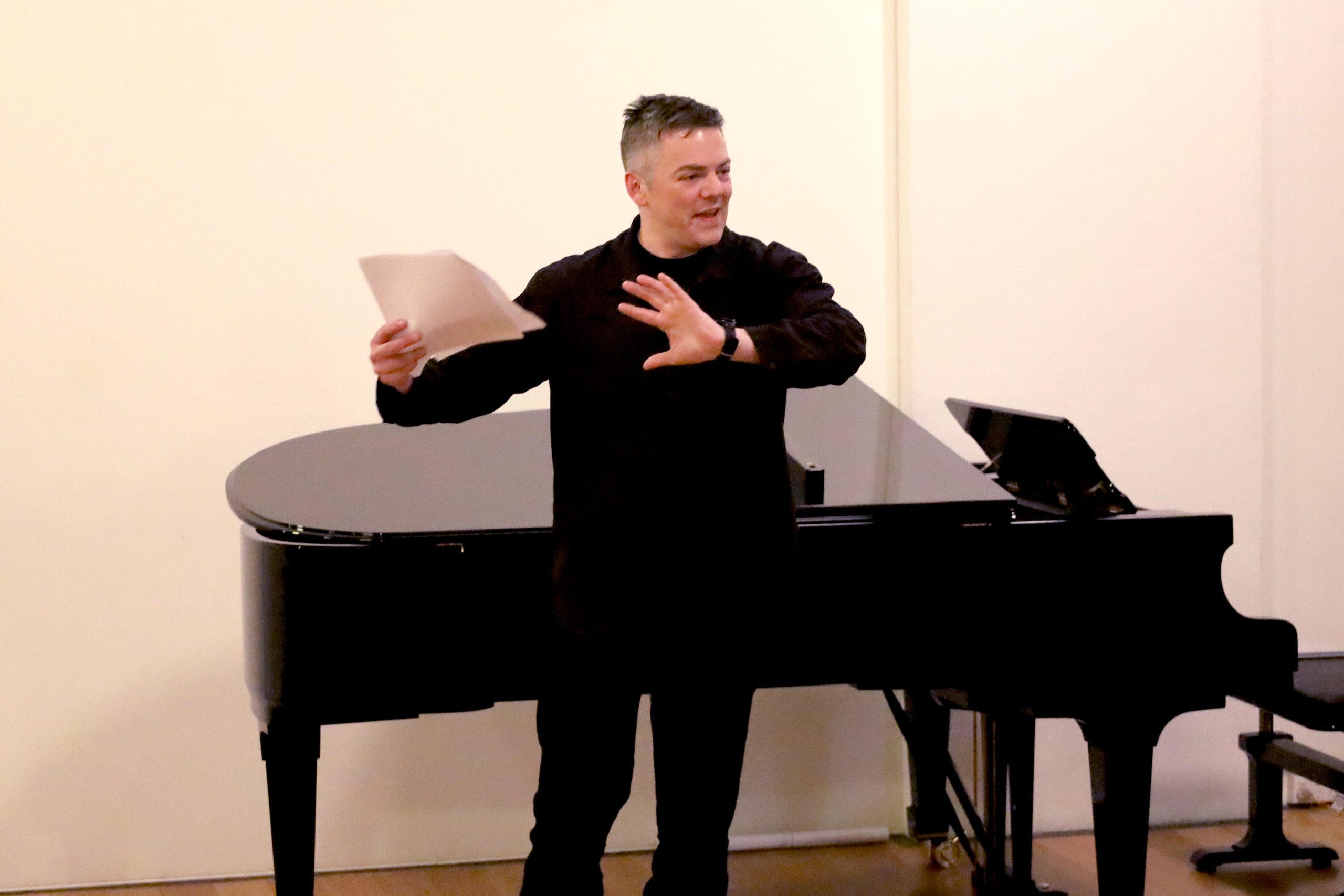AN interview with Nico Muhly
Aphrodite is your fourth opera. Your first opera, Two Boys, has been described as the “love-child of John Adams and [Benjamin] Britten”. Are there any composers or parts of the opera canon that have specifically inspired the music of Aphrodite?
My goodness, I feel like I hadn’t quite heard that description but I’m not entirely mad at it. In fact, I would argue that genetic material from Britten and Adams permeate much of Aphrodite as well. If I were doing a forensic analysis, I would say that you hear a fair amount of Sondheim, particularly in the last fifteen minutes, as well as other things that slipped in there unnoticed.
Opera is full of ‘takes’ on mythology. You have recently created an orchestration/realisation of Monteverdi’s l’Orfeo. What has engaging with Monteverdi’s work at so deep a level revealed to you about the possibilities for [re]creating myths through the medium of music drama?
Orchestrating l’Orfeo for modern instruments was, in some senses, attempting to reinforce Monteverdi’s brilliant music with colour; I never wanted to get in the way of his brilliant use of chromaticism or the pacing of the work, the subtly calibrated disposition of the dances and arias. Strangely, in the same 18 months or so, I saw Matthew Aucoin’s Eurydice and Gluck’s Orfeo ed Euridice; rather a surfeit of the same myth! The good news about Laura Lethlean’s libretto is that the actual “story” of Aphrodite is buried in it almost as a given; we breeze over her biography in favour of understanding the effect of the myth on a specific woman living in modern times. In this sense, I felt quite liberated (as, I trust, did Laura) to try to conjure specific mythological elements through highly stylised gestures (as we find in Stravinsky’s Oedipus rex), but instead through longer, more considered laments and arguments which Laura’s text suggested. In this sense, Purcell’s Dido & Æneas is a closer ancestor.
"With only two people on stage and seven in the pit, everybody has to pull their weight! Sometimes with grand opera there are almost too many tools in the toolbox and the orchestration process becomes a puzzle or a game of Jenga."

What are the challenges and gifts of writing a chamber opera vs. an opera for full orchestra, chorus and numerous soloists? How does the limitation of solo instrumental parts and voices influence the way you compose?
The instant I knew that Omega ensemble would be the pit band, as it were, I immediately knew exactly how the ensemble would function. They come in and out of focus; I’d argue that they perform a traditional accompagnando role about a quarter of the time, but in most cases, they “know” more about what’s happening on the stage than Jess O’Donoghue (playing Ava).
I tailored the part on Jess, but in some ways left her a minimum of interpretative clues (for instance, there are very sparse dynamics in her part), as I knew she, as a composer, curatrix, and producer, would and should bring a lot of her own instincts to the work. Meechot Marrero, a new collaborator for me, instantly stepped into the complicated and intense role of Aphrodite. With only two people on stage and seven in the pit, everybody has to pull their weight! Sometimes with grand opera there are almost too many tools in the toolbox and the orchestration process becomes a puzzle or a game of Jenga.
How do collaborations, such as with the Aphrodite librettist Laura Lethlean and director Alexander Berlage, shape the composition process? How can words and stage imagery influence abstract musical decisions?
This was an interesting process because Laura and Alexander and I only got together in a room one time. Having Alex intimately involved in the process from the jump meant that the dramaturgic language (both in terms of dramatic flow and the visual language) co-developed with the text and the music, which has its challenges but mainly enormous benefits. We all agreed on a loose structure of the libretto (a dozen or so sections and then Laura went away and started writing and I started sketching out gestures — no notes or rhythms but shapes. Then, when the text arrived — as is always the case — most of it set like a dream and it was obvious to me what to do. The real fun came with trying to recode Laura’s subtle and sly reversal of roles for the two characters in a way which was musically satisfying but also suggestive rather than prescriptive to Alex.